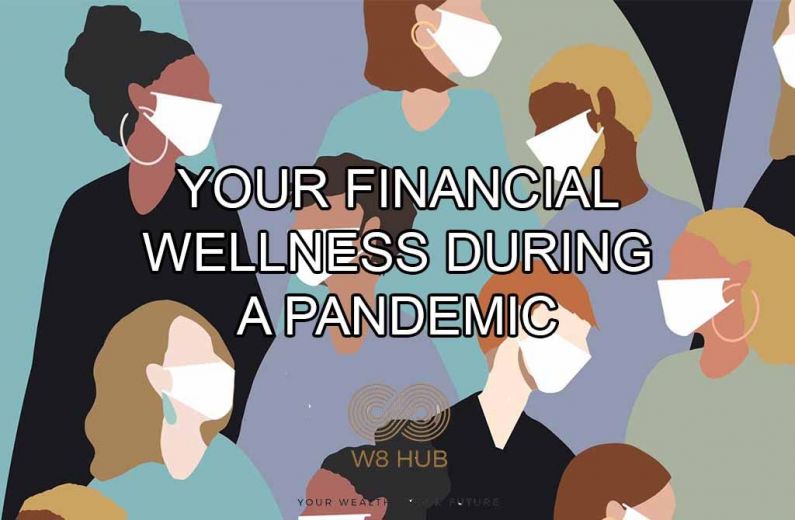
 The events of the past few weeks have been un-precedented. COVID-19 has forced us all to make significant changes to our daily lives, including our careers, education and most importantly our finances. Many of us are working from home while others have had to shut down their businesses due to the restrictions of social distancing brought about by the pandemic. As COVID-19 takes its course, many are coping with income loss and are quickly reviewing their personal finances to ensure they can make it through this difficult time. The virus coupled with the volatility of the stock markets and the sharp drop in oil prices, has had a negative impact on the world economy.
The events of the past few weeks have been un-precedented. COVID-19 has forced us all to make significant changes to our daily lives, including our careers, education and most importantly our finances. Many of us are working from home while others have had to shut down their businesses due to the restrictions of social distancing brought about by the pandemic. As COVID-19 takes its course, many are coping with income loss and are quickly reviewing their personal finances to ensure they can make it through this difficult time. The virus coupled with the volatility of the stock markets and the sharp drop in oil prices, has had a negative impact on the world economy.
The uncertainty and the risk of a global economic recession calls for increased financial self-care. Staying at home for weeks means your finances will be greatly impacted, especially for those who don’t have paid time off at work and no other source of income. On the other hand, if your income is not affected, you’ll probably be spending less during this time, which can help you build your savings. This is where the importance of emergency savings comes in — i.e. easy-to-access savings of three to six months’ of your take-home pay. You can dip into emergency savings until things stabilise

However, not everybody has this, so now is the best time to make a plan. If your income is affected because of the virus, you’ll need to review your finances and cut back on any non-critical spending until you things revert to normal. Even when you return to earning normally, it’s a good idea to keep those habits in place for a while to help you to start building your emergency savings. For those who have emergency savings, it’s also a good time to review your finances. This is the time to think about what really matters to you, this is the first step to spending more mindfully. You may want to pull back in certain areas to make more room for the future.
 Take a look at your recent bank and credit card statements and look for anything you’re paying for each month that you don’t really need or things you may not even know about. Then look at what you want, and what you might need to press pause on. Some expenses may go up and others down for a while. For example, your electricity and gas bill may go up as you are home for extended periods of time while your entertainment and child care expenses may go down, depending on your situation. Understandably, people are panicking and thus overspending on groceries, however, try not to stockpile.
Take a look at your recent bank and credit card statements and look for anything you’re paying for each month that you don’t really need or things you may not even know about. Then look at what you want, and what you might need to press pause on. Some expenses may go up and others down for a while. For example, your electricity and gas bill may go up as you are home for extended periods of time while your entertainment and child care expenses may go down, depending on your situation. Understandably, people are panicking and thus overspending on groceries, however, try not to stockpile.

Only buy what you need and what you’d want to have on hand for a couple of weeks if you are forced to ‘self-isolate.’ The unfortunate prospect of ill health (if you are infected by the virus) is also a time to rethink your healthcare plan. Public healthcare in many countries is currently overwhelmed by the astounding number of people infected by the spread of the virus. Whilst some people may have their healthcare plans attached to their workplaces, it is still important to have additional cover in case of any job insecurity. If you don’t have it already, it may be useful in the future to invest in personal healthcare insurance.
 In regards to your investments, the best strategy is patience - in the face of the volatility of the global financial markets which have experienced a dramatic fall (due to the impact of the corona virus). Do not check your investment balance every minute as this will only make you more anxious. Trying to beat the market will only encourage terrible investment decisions. Seek expert financial advice before taking any hasty decisions. The experts recommend investing consistently, a little every month instead of trying to guess when to “buy low” and “sell high.” Your balance will inevitably decrease when markets go down and it may be tempting to withdraw your money to avoid further losses, however, this could mean missing out on good returns and opportunities when the market stabilizes. Investing over time — a little bit during the good days, a little bit during the bad days — means that you’ll be buying when prices are low and when prices are high, and you’ll pay an average price over time.
In regards to your investments, the best strategy is patience - in the face of the volatility of the global financial markets which have experienced a dramatic fall (due to the impact of the corona virus). Do not check your investment balance every minute as this will only make you more anxious. Trying to beat the market will only encourage terrible investment decisions. Seek expert financial advice before taking any hasty decisions. The experts recommend investing consistently, a little every month instead of trying to guess when to “buy low” and “sell high.” Your balance will inevitably decrease when markets go down and it may be tempting to withdraw your money to avoid further losses, however, this could mean missing out on good returns and opportunities when the market stabilizes. Investing over time — a little bit during the good days, a little bit during the bad days — means that you’ll be buying when prices are low and when prices are high, and you’ll pay an average price over time.
Also, your deposits can buy more when markets are down. This is referred to as buying stocks “on sale.” One example: If you had invested in the stock market in the 20 years between 1999 and 2018 and not touched it, your money would have tripled. But if you had traded in and out and had missed out on just the ten best stock market days over that same time, your returns would have only been half of that. Regardless of the impact of COVID-19, reviewing your finances and finding ways to improve is the smart thing to do in periods of uncertainty.



